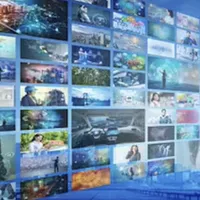119.The Music Industry
Ben talks about how hard it is to make it in music and changing trends.
Hana: Alright, so Ben, what do you think about the music industry recently?
Ben: Recently? Actually, you know I don't really listen to the radio so I'm not really sure about popular music, but one thing I do is I read a lot about music news, so one thing I've been noticing is with all of these new programs and websites like iTunes, Spotify, the free music ...
Hana: Like YouTube yeah?
Ben: YouTube. Yeah, YouTube as well. Like sometimes musicians, we don't ... No one buys CDs anymore.
Hana: No.
Ben: Right? When was the last time you bought a CD? Do you remember?
Hana: I don't even remember. Probably like ten years ago.
Ben: Right, so like with the internet and the increase of everyone having high speed internet all around the world, I think the industry is changing a lot, especially for musicians and how they get paid.
Hana: Yeah, true.
Ben: It's interesting in that kind of way, but I think it's a little ... I think we need to change how we pay musicians because people can't make money anymore.
Hana: No.
Ben: Used to sell CDs and receive a profit from that, but now people are on YouTube downloading music illegally.
Hana: Yes.
Ben: Do you remember those programs that people ... What were they called? Like they were like downloaded ... Peer to peer downloading software programs, like I think one of them was called Napster. It was one of the biggest ...
Hana: Was it?
Ben: Yeah, yeah. It was huge.
Hana: Okay.
Ben: You would download this ... I remember, it was about 15 years ago. You would download the program onto your computer and you'd search for something. Let's say Madonna, which was actually my first song that I ever downloaded illegally was Madonna because I liked her when I was a kid.
Hana: Okay.
Ben: Before my punk days.
Hana: Alright. Right.
Ben: So yeah, you type in the name of the artist you want to listen to and you'd down ... All these songs come up that people have placed on the internet.
Hana: Right.
Ben: And you can download that and you can keep it and listen to it as many times as you want for free.
Hana: Yeah.
Ben: And you didn't pay ... I didn't pay Madonna anything.
Hana: No.
Ben: Right? In that way, I think the music industry has changed a lot.
Hana: Yeah, I think so.
Ben: Yeah, yeah. I'm not sure if it's good or bad, probably bad.
Hana: You think?
Ben: For artists I think it's not good.
Hana: For artists. Yeah.
Ben: Especially if they're not as popular, so if they do not have a very big record deal.
Hana: Yeah.
Ben: How do they ... How are they going to get profit? If there's someone like less popular, someone independent artist, like the lower level not so popular artists, they don't make money.
Hana: No, but I mean, I think recently, I think it's a good thing that people sort of can find non-famous singers on YouTube or on internet. I listen to radio and while I drive I listen to radio often and I also listen to music on YouTube. The other day accidentally I found ... Maybe it's not even a singer, it's just an ordinary person singing somebody's song by her ... I thought he is great and I start listening to his songs and I subscribe his channel and in that way, unknown ... Well, famous people can become famous and they can make money and sort of ... In that sense, YouTube or those internet websites or apps can give them opportunity for ...
Ben: That's true. I think ... I totally agree with you and I think in that way, that's ... I guess YouTube and the internet has helped lesser known artists become exposed.
Hana: Yes.
Ben: Right?
Hana: Exactly.
Ben: So there's exposure with YouTube, right? So there's all these view count, right? You can suggest a YouTube video to a friend, you can share it on your Facebook page.
Hana: Yeah.
Ben: Definitely in that way YouTube has totally changed ... Have you heard the term go viral before?
Hana: No. What does that mean?
Ben: Go viral means that a video that's put on video gets a lot of hits, a lot of views very, very, very quickly, so it gets seen by a lot of people. Viral, like a virus, right? It spreads through the internet.
Hana: Okay.
Ben: There are some unknown artists that started out with just a YouTube video and that video went viral, right? It received many views, many people saw it, and now they're popular musicians that people know about.
Hana: Right? Like Justin Bieber, yeah?
Ben: You know what? I think you're right. Didn't his parents put him on YouTube when he was a kid?
Hana: I guess so, yeah.
Ben: I think something ...
Hana: That's how he started, yeah?
Ben: Right. Yeah, in that way you can become ...
Hana: A pop star.
Ben: A pop star, right?
Hana: Yeah.
Ben: Just from posting a YouTube video that gets seen.
Hana: Right.
More English Listening Lessons for Language Learners

